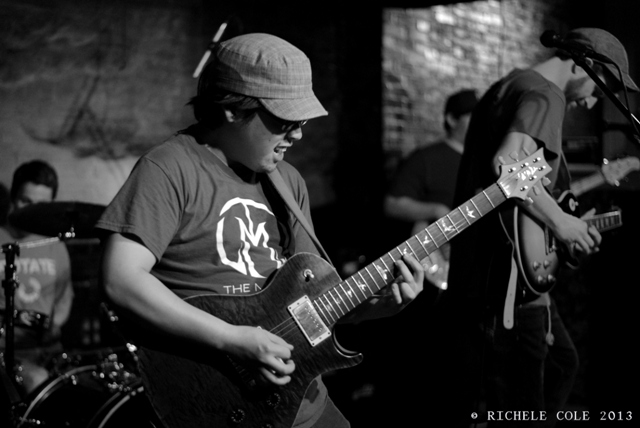Jymmin or Jammin, Music Heals the Body and Soul…
by Jenni Miller
(featured image by Roger Gupta at Rootwire)
Those who like to exercise to the beat of their favourite music usually say that music helps them kick a little higher, run a little faster, last a little longer… generally, music inspires us to give our workout just a little more heart and soul, than when silence reigns supreme. A new study, however, sheds light on how actually ‘making music’ while we work out, boosts our performance and stamina.
The study, published in renowned journal, Frontiers in Psychology, in December, 2013, showed how ‘creating music’ reduces perceived effort, and takes our energy supply just a little bit futher. The study involved 63 male and female subjects, who were instructed to work out under different conditions. In one test, subjects used gym fitness equipment while they listened to music. In another, music was ‘activated’ by the fitness equipment only when the participants used the machines to work out. The greater the effort exerted by the athletes, the more upbeat the tempo. The second test was referred to by the researchers as ‘jymmin’ (‘gym-ing’ plus ‘jammin’).
Measuring the Beneficial Effects of Music
While the subjects of the study exercised, researchers conducted metabolic tests, measuring their oxygen intake, changes in muscular tension and level of exertion. Results indicated that when participants were involved in ‘making’ the music, their muscles employed less energy, thereby increasing efficiency on a physiological level. Participants also reported feeling less strain during workout, which led to greater endurance. The mood of the ‘jymmin’ group was also enhanced by the music, leading scientists to conclude that working out on machines that respond to one’s level of exertion, can produce more desirable training effects.
If You Can’t Make It, Listen To It!
If you like what the scientists have to say but prefer a more passive listening experience, fear not; just listening to music can do everything from combat stress to boost your general health and immunity. This is great news for anyone wishing to protect their health, but also those who suffer from conditions related to their immunity. Conditions like herpes simplex and alopecia areata, for instance, are linked to problems of the immune system, which is why sufferers need to take particular care to do all they can to increase their body’s defenses. Scientists have found that listening to just 50 minutes of upbeat dance music increases levels of antibodies and reduces levels of harmful stress hormones like cortisol. These findings were made by researchers from Sussex University in England and the Max Planck Institute in Leipzig, Germany, who concluded that music can be used to facilitate patient recovery in hospitals. The positive physiological changes brought about by music, can boost the immune system and reduce stress all at once. These findings are doubly interesting since in the past, it was often thought that classical (and Baroque music, in particular) were able to curb stress, but the study shows that even dance music, with its significant power to motivate and energise, has powerful beneficial effects for listeners.
Music Therapy and Healing
The idea that music can be used to achieve therapeutic aims is not new; indeed, music therapy has long been used to improve cognitive functioning, motor skills, social skills and quality of life. Music therapy can involve a variety of activities, including making music, songwriting, jamming, listening during orientation, meditation, rhythmic work (for patients recovering from strokes), developing social schools, etc.
Music, like art therapy, is also often used with those suffering from mental conditions such as depression and post traumatic stress disorder, since it provides a means for patients to connect with their therapist, and to express pain and recollect painful memories that may be too difficult to communicate through speech. Music therapy is also highly favored for use with patients suffering from Alzheimer’s and dementia; studies have shown its power to improve social interaction, reduce restlessness and aggression and improve cognitive functioning in those with dementia.
The precise reasons for the power of music to quell agitation remains a mystery, though scientists believe that it reduces a person’s sensitivity to noise, helping them react less sensitively to the sounds in the environment. This is, perhaps, the same reason why music is so often used successfully with children with autism, who are highly sensitive to noises in their surroundings. Music also enables these children to improve their communication and social skills, and their sense of self-determination and independence.
Music has also been used to sooth cancer-related pain and to help patients suffering from myocardial infarction with the aim of lowering heart and respiratory rates. These patients have been shown to display less anxiety and oxygen demand, after a 20-minute listening experience.









